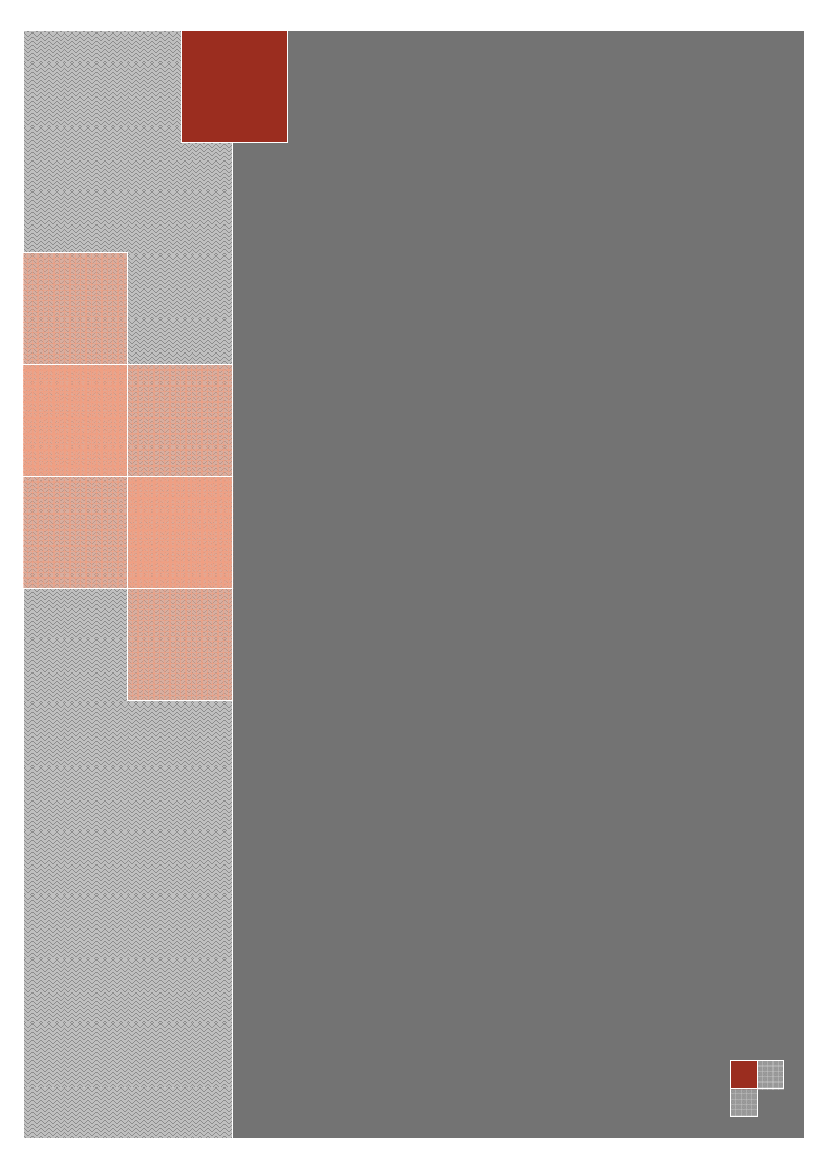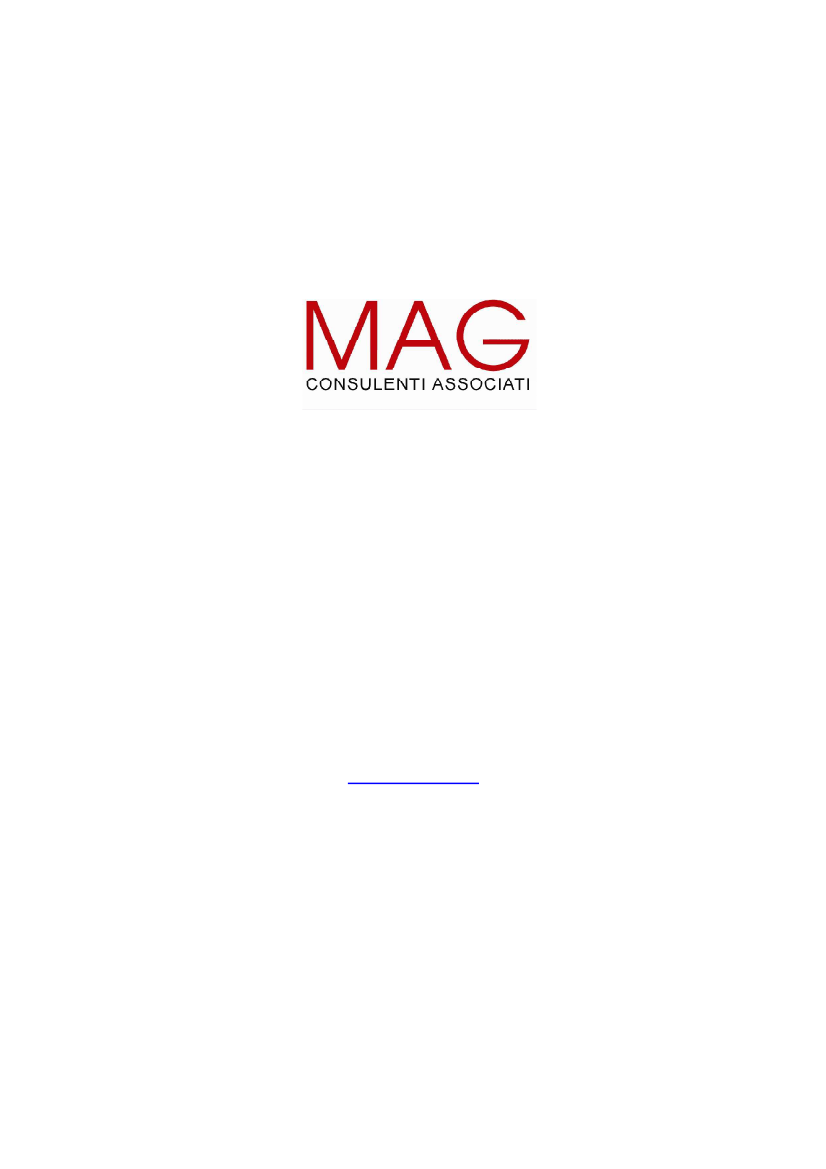Skatteudvalget 2009-10
L 202 Bilag 4
Offentligt
2010
Overview of the ItalianRegulatory Frameworkfor Online GamingEvolution of the Italian Online GamingRegulation 2002-2009
MAGMarch 2010
Executive SummaryThe MAG study provides a comprehensive overview of the Italian model for onlinegaming, its key provisions as well as its evolution into today’s format. It addresses thefollowing areas:
Structure of the Italian regulatory frameworkThere is no single text regulating online gaming in Italy. The gaming sector is governedby a collection of single regulatory interventions – some of general (primary laws), otherof technical or operational nature (secondary laws) – which succeeded each other overtime. While the introduction of new games and their taxation is the prerogative of theParliament, Italy’s Minister of Finances holds responsibility for issuing gaming regulationsand the single gaming authority AAMS is in charge of defining the implementingprovisions. The latest, so-called “Community” law – which was adopted in 2009 and isexpected to enter fully in force in the course of 2010 – has removed some previously EUnon-compliant provisions, including the requirement of Italy-based servers or operationalheadquarters/registered office, recognizing instead location in one of the states of theEuropean Economic Area.
Gaming licensesOrganisation and operation of online gaming in Italy is legally reserved to the State.However, the Italian Government has opted to entrust the management of online gamingto the approved private operators via so-called concessions or licenses. In order to obtaina 9-year license, operators must meet strict technological requirements, prove theireconomic-financial stability as well as demonstrate their reliability, particularly as regardsconsumer protection. As of today, there are 1.023 functioning online gaming licenses andadditional 200 may be issued (subject to the market needs) under the recent“Community” law. The latter will allow private operators to offer a complete portfolio ofonline games, including sports and horse racing bets, games of skill (such as poker) aswell as casino games. The logic behind extending the online gaming portfolio over timehas been to align the legal offer with the consumers’ demand so as to effectively preventthem from reverting to the black market to satisfy their needs.
Consumer protectionItalian regulatory framework lays down a number of limits to protect consumers andcontain compulsive gaming, for instance by setting maximum allowed stakes andwinnings. Under the “Community” law, the online gaming license holders are
furthermore obliged to put in place specific tools to enhance consumer protection such aspossibility for the consumers’ self-limitation or self-exclusion. Operators must alsoassume an obligation to provide for tools excluding access by minors. Both the operatorsand AAMS can verify in real time information entered for every new registration,including the tax ID which identifies the birth date. Italian rules also reflect on thepotential of online gaming for a real time detection and an early analysis of suspiciousfinancial transactions and thus effective prevention of possible money laundering ormanipulation of sports events. Hence for instance sponsorship and advertising areallowed, both by the private operators and AAMS.
The penalty systemAAMS closely monitors the Italian online gaming landscape in order to ensure that onlyauthorized operators can offer the games in its portfolio. Accordingly, the regulatorybody can take various measures to block the websites of unlicensed operators and imposemonetary or criminal sanctions. Current law provides for monetary fines as well asimprisonment for from 3 months to a maximum of 3 years.
Taxation modelTwo bases for taxation are currently used in Italy. While sports betting is taxed between2-5% on turnover (depending on the number of events), cash poker and casino games aretaxed 20% on Gross Gaming Revenue1to reflect their particularly high payout ratio2.These rates are significantly lower than the initially applied ones as the Governmentgradually made the link between the decreasing tax rates and the growing gamingturnover in the country. At the same time Italy also strived to align its taxation withinternational standards. Lower taxes boosted competitiveness of private online gamingoperators and thus resulted in an attractive and diversified online gaming offer thatswayed players from the black market towards a legal one, whilst significantly inflatingthe state revenue. By reducing taxation, the Government effectively managed to curtailthe black market and consequently increase the level of consumer protection as well asthe state income. As a result, Italy’s gaming turnover more than tripled from €15 billionin 2003 to over €54 billion at the end of 2009 which translated into more than a 240%increase of the state budget, from €3.5 billion in 2003 to €8.8 billion in 2009.
12
stakes minus winnings that the operators pay out to the customers; also referred to as GGRwinnings paid to customers
AAMSAAMS is Italy’s single gaming authority responsible for the regulation and control of theentire gaming sector. It issues licenses to reliable private operators, defines the finalgaming product line-up and its distribution, as well as the criteria for tax collection.Having a constant access to the servers of private operators, AAMS controls all gamingoperations in real time.
Possible elements to be replicatedThe study recognizes the following key elements which underline the success of theItalian model and could possibly be replicated in other European countries:•licensing model, particularly if a single license covers the complete gamingportfolio to provide private operators with economic certainty and a stablebusiness horizon;•clear regulatory definition of the games to protect consumers and the marketitself;•integrated regulatory model, with a primary law being complemented byintermediate secondary decrees which allow for speedy legislative refinement;•single point for the organisation and regulation of gaming;•mixed taxation model adapted to the type of game and the need for control, whichensures stable tax revenues;•interaction with gaming operators.
Evolution of the Italian gaming regulationSince the first mention of online gaming in 1998, Italy’s regulatory framework needed tobe completely reworked in order to reflect the technological developments andconsumers’ demand but also to address several critical aspects which initially remainedunregulated. Maturing over the years – in particular since a comprehensive strategyoutlined in 2002 – the online gaming regulation was completed in 2009. Beyond the fullmarket opening for an entire range of online games, the Government also seized theoccasion to address the concerns expressed by the EU, namely by eliminating several pre-existing restrictions and strengthening dispositions concerning consumer protection, asmentioned above.In the appendix, the study also provides detailed information about specific laws andprovisions for each online gaming sector.
MAG S.r.l.
Via F. S. Benucci 47
00149 Rome, Italy
VAT and Tax No. 0803 5481 004Registered at REA (Repertorio Economico Amministrativo)of Rome with No. 1068 922Tel. +39 06 454 438 06Fax +39 06 454 438 86[email protected]Contact: Mr Carmelo Mazza





